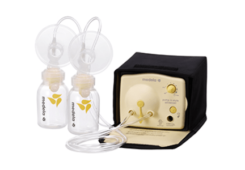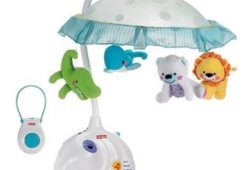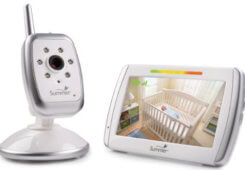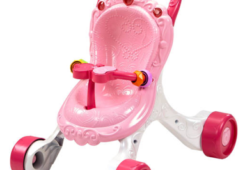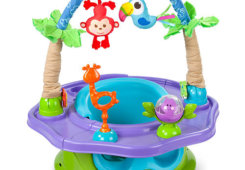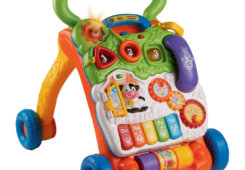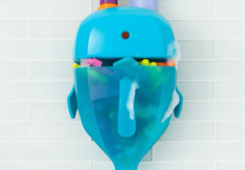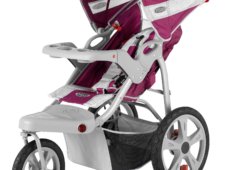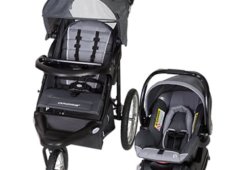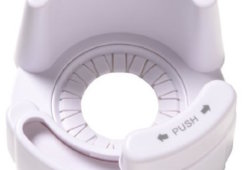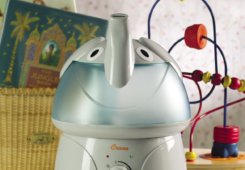What Every Mom Ought to Know About Depression and Anxiety
The other day I asked many different women in 5 different Facebook mom groups what they were struggling with and what would they like to change about it. All the women who responded stated that they were suffering from postpartum depression in silence, anxiety, and learning how to be a single mom. For the first time in my life, I’ve never related so much to a group of women who were experiencing the same situation as me.
I immediately gave them the link to a blog post that I had written about How to Make Single Parenting Work. I’ve gotten a good handle on single parenting, but my depression stills seems like an everyday battle. Many moms may experience the baby blues, a mild, brief form of depression which can last for a few days or weeks after giving birth. However, 10 to 20 percent of moms will experience postpartum depression which can interfere with daily life.
I suffered a mild case of the baby blues with my first born in 2011. It wasn’t until my third pregnancy in 2014, after suffering in silence, that I was diagnosed with severe depression and anxiety. I was then advised to take antidepressants to help. My medications seemed to work for me, but if I forgot to take them for a few days, the result was terrible. I remember being in my car on the way to work sobbing out of nowhere. If you are going to opt for taking antidepressants, please remember that they are not a cure for your depression. You still must make some very crucial life changes for you to start feeling any “relief”.
One of the mothers who responded to my post brought up a good point. She replied, “I wish I knew more of the signs and that it wasn’t always suicide and not wanting your baby. I feel like they should hold classes. So, expecting mothers can help themselves see the signs.” Well after a bit of research I’ve found that only 15% of women with postpartum depression ever receive professional treatment.
Part of the reason for the lack of treatment is the fact that many obstetricians are not screening for it. Having given birth a few times myself, I can confirm the authenticity of this statement. On the other hand, this is probably because of hormonal changes during pregnancy. A pregnant woman may not realize that she is suffering from depression. At first, the many other symptoms that are typical of pregnancy may not seem different from depression.
Common symptoms of depression include:
•Lack of energy
•Disrupted sleep patterns
•Difficulty concentrating, a feeling of emptiness
•A loss of interest in activities once enjoyed
•Feelings of guilt or shame
•Loss of appetite or a tendency to overeat
•Suicide
Remember these symptoms can arise at any point in a mother’s life, and it is crucial not to ignore the symptoms for both the sake of the mother and her child(ren).
Did you know that single moms are at a higher risk for depression and anxiety? They are also more ask risk for depression and anxiety than single dads. Life as a single parent is overwhelming and depleting. Some mothers like myself are fortunate enough to have family who shares the burden, but some are not as lucky.
Single mothers tend to neglect their own health because of their responsibilities and often downplay their symptoms. If you’re a single mom, I know how exhausted you are, believe me. Single mothers do the work of 3 every day, with little to no social support and millions of life stressors. If you’re a single mother, you must remember to try the following:
•Ask
•Connect with other single parents
•Rest
•Treat Yourself Often
You are a “single” parent; you cannot do it alone. It does take a village to raise a child. When help is offered to take it! Even when help isn’t offered, ask. You will be thankful for it in the long run. Even if it’s 1 or 2 hours, that’s more hours than you had before. Especially if you have more than one kid like me, TAKE IT! Connect with people who understand your situation. If you are a newly single parent, then hanging other with non-single parents can be a downer. Single parents are one of your biggest supporters and will listen to you vent about anything. Also, start teaching the little ones to clean up after themselves to make things a little easier. We already manage so much on our own. If you have older children, show them how to help you with the younger ones.
Well now that we know a little bit more about depression and its ties to single motherhood here is a short list that you can add to the one above to help treat your depression.
Take Action:
•Join a support group
•Try relaxation techniques, meditation, and breathing exercises. (I opted for Yoga.)
•Talk with family members or friends, they can be helpful depending on your situation.
•Try talk therapy. Your therapist may recommend self-help materials.
•Regular exercise can reduce symptoms of depression and anxiety.







